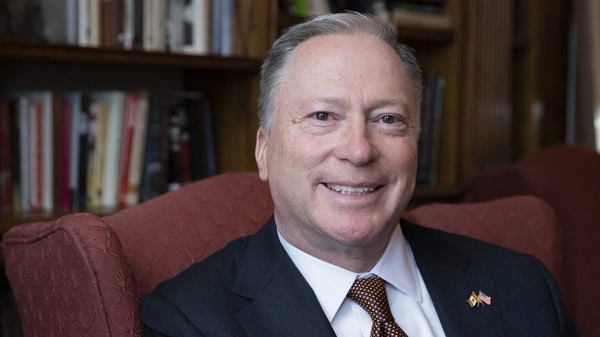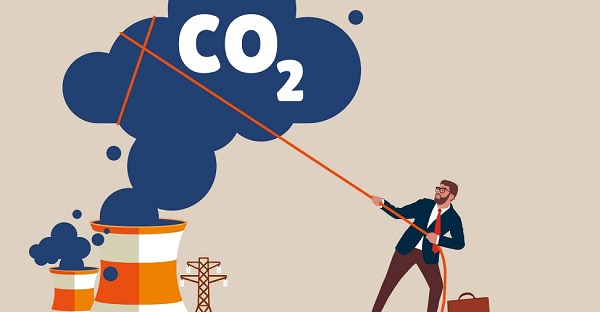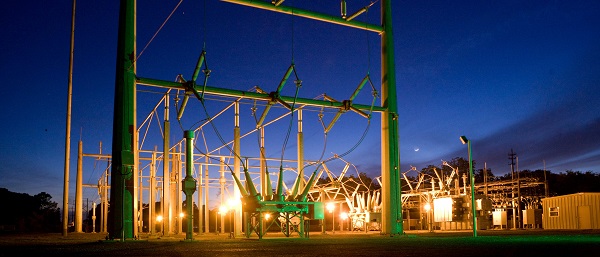Alberta
Second presumptive COVID-19 case reported in Alberta

Alberta’s chief medical officer of health has confirmed the province’s second presumptive case of novel coronavirus, officially known as COVID-19.
The individual is a male in his forties who lives in the Edmonton zone. The case is travel-related and he is recovering in isolation at home with support from public health officials.
“While I know some Albertans may be concerned by a second case, this is not unexpected. The risk to Albertans is still considered low. We have already isolated this individual and are taking swift action to implement immediate precautions to prevent the infection from spreading.”
“I have full confidence that our front-line health-care workers are ready and able to handle this challenge. Thanks to Alberta’s focused preparations, this case has been quickly identified and all the immediate first steps required to protect the public and our front-line health-care staff are being taken.”
The affected individual recently returned from travel in the United States. He had visited Michigan, Illinois, and Ohio, before returning to Alberta on Feb 28. He is currently in isolation at home.
The case was detected on March 6. Health officials are currently identifying close contacts of this individual and will be asking them to self-isolate at home, away from the public. They will be closely monitored by public health officials. If they do develop symptoms, health officials will coordinate getting them into care immediately while ensuring that the public and health-care workers are not exposed.
Effective immediately, Alberta will be expanding its testing protocols. All travellers returning from outside of Canada are advised to monitor their symptoms. If they experience flu-related symptoms, such as a fever or a cough, they should self-isolate and call Health Link at 811 to arrange followup testing. Returning travellers should not visit emergency departments or urgent care centres for testing. Calling 811 is the best way to get quick assessment and testing.
This applies only to returning travellers who are symptomatic with fever, or cough.
The risk of exposure is still considered low in Alberta, however this may change over the coming weeks, and if it does, we will communicate this to Albertans.
Alberta Health and Alberta Health Services will continue to closely monitor the situation, conduct surveillance and appropriate laboratory testing, and provide public health and infection control guidance.
Quick facts
- The most important measures that Albertans can take to prevent respiratory illnesses, including COVID-19, is to practise good hygiene.
- This includes cleaning your hands regularly, avoiding touching your face, coughing or sneezing into your elbow or sleeve, disposing of tissues appropriately, and staying home and away from others if you are sick.
- Anyone who has health concerns or is experiencing symptoms of COVID-19 should contact Health Link 811 to see if followup testing is required.
- For recommendations on protecting yourself and your community, visit alberta.ca/COVID19.
Alberta
Enbridge CEO says ‘there’s a good reason’ for Alberta to champion new oil pipeline

Enbridge CEO Greg Ebel. The company’s extensive pipeline network transports about 30 per cent of the oil produced in North America and nearly 20 per cent of the natural gas consumed in the United States. Photo courtesy Enbridge
From the Canadian Energy Centre
B.C. tanker ban an example of federal rules that have to change
The CEO of North America’s largest pipeline operator says Alberta’s move to champion a new oil pipeline to B.C.’s north coast makes sense.
“There’s a good reason the Alberta government has become proponent of a pipeline to the north coast of B.C.,” Enbridge CEO Greg Ebel told the Empire Club of Canada in Toronto the day after Alberta’s announcement.
“The previous [federal] government’s tanker ban effectively makes that export pipeline illegal. No company would build a pipeline to nowhere.”
It’s a big lost opportunity. With short shipping times to Asia, where oil demand is growing, ports on B.C.’s north coast offer a strong business case for Canadian exports. But only if tankers are allowed.
A new pipeline could generate economic benefits across Canada and, under Alberta’s plan, drive economic reconciliation with Indigenous communities.
Ebel said the tanker ban is an example of how policies have to change to allow Canada to maximize its economic potential.
Repealing the legislation is at the top of the list of needed changes Ebel and 94 other energy CEOs sent in a letter to Prime Minister Mark Carney in mid-September.
The federal government’s commitment to the tanker ban under former Prime Minister Justin Trudeau was a key factor in the cancellation of Enbridge’s Northern Gateway pipeline.
That project was originally targeted to go into service around 2016, with capacity to ship 525,000 barrels per day of Canadian oil to Asia.
“We have tried to build nation-building pipelines, and we have the scars to prove it. Five hundred million scars, to be quite honest,” Ebel said, referencing investment the company and its shareholders made advancing the project.
“Those are pensioners and retail investors and employees that took on that risk, and it was difficult,” he said.
For an industry proponent to step up to lead a new Canadian oil export pipeline, it would likely require “overwhelming government support and regulatory overhaul,” BMO Capital Markets said earlier this year.
Energy companies want to build in Canada, Ebel said.
“The energy sector is ready to invest, ready to partner, partner with Indigenous nations and deliver for the country,” he said.
“None of us is calling for weaker environmental oversight. Instead, we are urging government to adopt smarter, clearer, faster processes so that we can attract investment, take risks and build for tomorrow.”
This is the time for Canadians “to remind ourselves we should be the best at this,” Ebel said.
“We should lead the way and show the world how it’s done: wisely, responsibly, efficiently and effectively.”
With input from a technical advisory group that includes pipeline leaders and Indigenous relations experts, Alberta will undertake pre-feasibility work to identify the pipeline’s potential route and size, estimate costs, and begin early Indigenous engagement and partnership efforts.
The province aims to submit an application to the Federal Major Projects Office by spring 2026.
Alberta
The Technical Pitfalls and Political Perils of “Decarbonized” Oil

By Ron Wallace
The term “decarbonized oil” is popping up more and more in discussions of Canada’s energy politics. The concept refers to capturing and storing carbon dioxide (CO₂) generated during oil production and processing, thereby reducing greenhouse gas emissions, in order to support the continued strength of Canada’s oil and natural sector, the nation’s number-one export earner and crucial to the economies of Alberta and Saskatchewan. Projects like the Weyburn Carbon Capture, Utilization and Sequestration Project in Saskatchewan have demonstrated the idea’s technical feasibility by sequestering 1.7 million tonnes of CO₂ annually while producing incremental oil.
The key question now is whether this type of process can be dramatically scaled up – by anywhere from six to over 20 times – to facilitate what Alberta Premier Danielle Smith has termed a “grand bargain”: using carbon capture and storage (CCS) to gain a greenlight from the federal government for a new oil export line to the West Coast, enabling Alberta to continue growing oil production and generating jobs while advancing Ottawa’s climate goals. Prime Minister Mark Carney may be prone to hedging and ambiguity, but he has now made it clear that any such pipeline will indeed be contingent on Alberta proving it can “decarbonize” its oil
production.
The Pathways Alliance, a group of six producers representing 95% of Canada’s oil sands production, has designed a $16.5 billion CCS network to capture and store CO₂ from up to 20 facilities, aiming for 11 million tonnes per year in Phase 1 and a breathtaking 40 million tonnes in Phase 2. Pathways is intended to help build consensus in favour of a new oil export pipeline that could enable up to 25% growth in Alberta’s oil production – generating possibly $20 billion per year in export revenues.
While credible critics, including the Institute for Energy Economics and Financial Analysis (IEEFA) and energy economist Jennifer Considine, highlight the high costs, uncertain revenues and poor returns from several other attempts at large-scale CCS, Alberta’s UCP government appears to view it as the way out of its current impasse with Ottawa. It believes the profits generated from exports of Alberta’s decarbonized oil could themselves help finance the CCS facilities required for the “grand bargain” to be sealed.
Smith has been keeping up the political pressure, recently announcing that Alberta will fund and lead the effort to submit a formal pipeline application to the Carney government’s new Major Projects Office. Major obstacles remain, but none is more serious than Carney maintaining predecessor Justin Trudeau’s suite of anti-energy policies, particularly the draft oil and natural gas emissions cap, as part of his government’s intention to meet net-zero targets by 2050 (although Carney has recently indicated some flexibility in this view). Smith argues that this is effectively an “unconstitutional” production cap that threatens Alberta’s economic future, vowing to challenge it legally if Carney doesn’t shelve it.
Smith’s government at the same time is pursuing a more conciliatory tactic, offering to help advance federal climate objectives through CCS in order to speed up pipeline approvals under Carney’s Bill C-5. In this track, there is a question as to whether Alberta may be walking into an economic and technological trap that it will regret.
That is because the “grand bargain” would create two different classes of oil in Canada, operating under different sets of regulations and resulting in different cost structures. Western Canada’s crude oil producers would shoulder costly and technically challenging decarbonization requirements – plus the threat of federal veto over any new oil projects that weren’t similarly “decarbonized”. Canadian-produced oil would enter international export markets at a significant if not ruinous competitive disadvantage, risking not only profitability but market share. Eastern Canada’s oil refiners, meanwhile, would remain free to import fully “carbonized”
oil at the lowest prices they could get from countries with significantly looser environmental standards.
The Alberta oil sands currently generate 58% of Canada’s total oil output. Data from December 2023 shows Alberta producing a record 4.53 million barrels per day as major oil export pipelines including Trans Mountain, Keystone and the Enbridge Mainline operated at near capacity. The same year, Eastern Canada imported on average about 490,000 barrels per day by pipeline and sea from the United States (72.4%), Nigeria (12.9%) and Saudi Arabia (10.7%). Since 1988, imports by marine terminals along the St. Lawrence River have exceeded $228 billion, while imports by New Brunswick’s Irving Oil Ltd. refinery totalled $136 billion from 1988 to 2020.
The economic viability of large-scale CCS projects remains completely unproven; indeed, attempts to date in other jurisdictions have performed poorly. Attempting to “decarbonize” Alberta’s oil, then, makes little economic sense; it appears to be based more on the Carney government’s ideological objectives set to achieve global climate objectives.
The question thus becomes why Alberta is agreeing to a policy that could trap its taxpayers in a hugely expensive and unfair system that could imperil consideration of any new pipelines for Canadian oil exports, especially when private capital already largely remains on the sidelines.
Not only Albertans but Canadians generally need to carefully reconsider any “grand bargain” that hinges on “decarbonization” of western Canadian oil, because doing so threatens the economic viability of Alberta oil production and associated export pipelines – without meaningfully reducing global CO 2 emissions. And if industry proves unable to raise the vast capital required to construct the CCS projects, while lacking the cash flow to cover the steep ongoing costs needed to operate them, then where is the money to come from? At a time when Canada’s fiscal trajectory is so worrisome, the shortfall had better not be made up through public subsidies.
Even worse than the yawning fiscal risks, such an approach risks splitting the country into two economic zones: a West burdened by costly decarbonization requirements making Alberta’s oil some of the world’s least profitable to produce, and an East benefiting as before from cheaper imported oil. This is hardly conducive to national unity. It is time for Alberta to reconsider the “grand bargain”.
The original, full-length version of this article was recently published in C2C Journal.
Ron Wallace is a former Member of the National Energy Board.
-

 Alberta2 days ago
Alberta2 days agoFact, fiction, and the pipeline that’s paying Canada’s rent
-

 2025 Federal Election2 days ago
2025 Federal Election2 days agoProtestor Behind ‘Longest Ballot’ Chaos targeting Poilievre pontificates to Commons Committee
-

 Energy1 day ago
Energy1 day agoIndigenous Communities Support Pipelines, Why No One Talks About That
-

 Business2 days ago
Business2 days agoFinance Titans May Have Found Trojan Horse For ‘Climate Mandates’
-

 Alberta1 day ago
Alberta1 day agoOil Sands are the Costco of world energy – dependable and you know exactly where to find it
-

 International2 days ago
International2 days agoSigned and sealed: Peace in the Middle East
-

 Business1 day ago
Business1 day agoFinance Committee Recommendation To Revoke Charitable Status For Religion Short Sighted And Destructive
-

 Alberta23 hours ago
Alberta23 hours agoThe Technical Pitfalls and Political Perils of “Decarbonized” Oil






